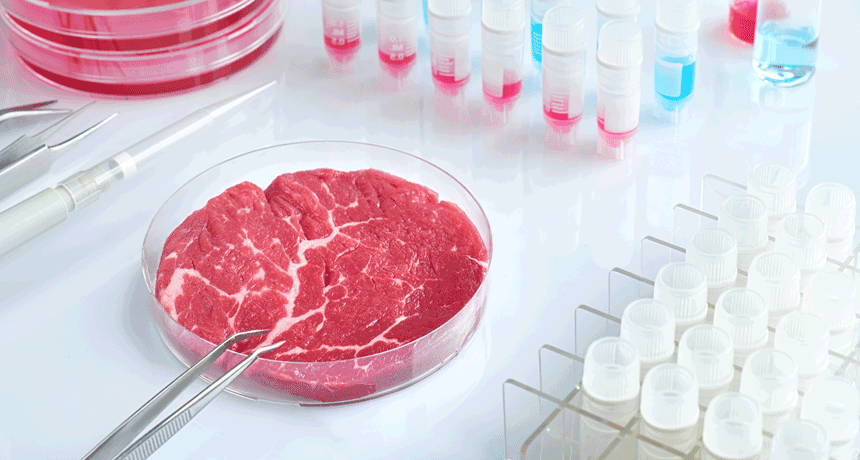From Molecules to Organisms: Structures and Processes
-
 Chemistry
ChemistryLike Magneto? Microcrystals give magnets superpower over living cells
New iron-rich protein crystals could help researchers better understand the nerve cells that control movement and sensation. All they need are magnets.
By Jeremy Rehm -
 Brain
BrainAs teens gain weight, they find high-fat foods less pleasurable
Teens who gained excess weight showed less activity in the brain’s reward center when viewing or tasting foods with lots of fat.
-
 Brain
BrainSleep may jumpstart the brain’s power washing system
Waves of fluid wash into the human brain during sleep. That’s good. They just may help clean out toxic proteins.
-
 Chemistry
ChemistryScientists look to hack photosynthesis for a ‘greener’ planet
Photosynthesis turns sunlight into energy for plants. Scientists want to know more about it, imitate it — even improve it.
-
 Life
LifeA new spin on lab-grown meat
A technique inspired by how cotton candy is spun could help produce lab-grown meat at a lower cost and on a bigger scale.
-
 Animals
AnimalsBlood vessels in their heads kept big dinos from overheating
Giant dinosaurs evolved several ways to cool their blood and avoid heatstroke.
-
 Brain
BrainThe science of ghosts
One in five Americans say they’ve encountered a ghost. But science has no evidence that ghosts are real. Here are more likely explanations.
-
 Genetics
GeneticsExplainer: How DNA testing works
Lots of companies will now test DNA from people and their pets. How do these gene-sequencing techniques work? We explain.
-
 Health & Medicine
Health & MedicineUltrasound might become a new way to manage diabetes
Ultrasound turns on production of the hormone insulin in mice. Someday, it might help maintain healthy blood-sugar levels in people who were recently diagnosed with diabetes.
-
 Life
LifeExplainer: Prokaryotes and Eukaryotes
Prokaryotes tend to be small and simple, while eukaryotes have embraced a highly organized lifestyle. These divergent approaches to life have both proved very successful.
-
 Health & Medicine
Health & MedicineExplainer: The benefits of phlegm, mucus and snot
There are many types of mucus in the body. They might seem gross, but these gloppy goos are the first line of defense against infection.
-
 Health & Medicine
Health & MedicineExplainer: What are proteins?
In the body, proteins act as biochemical machines to carry out the work of cells.
By Bryn Nelson and Bethany Brookshire